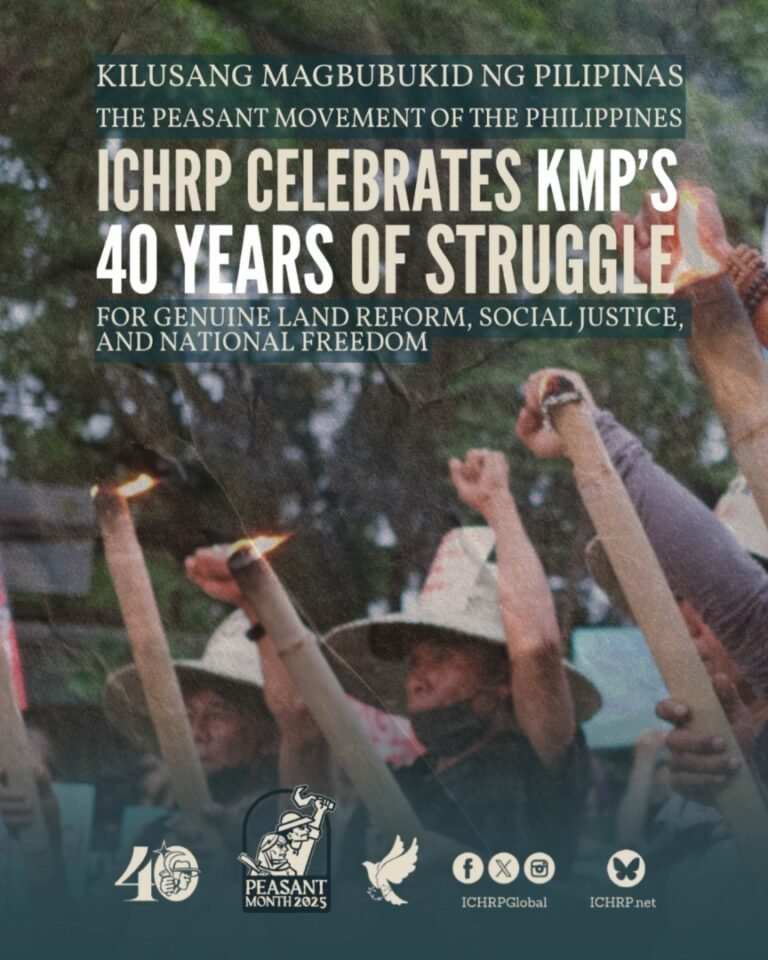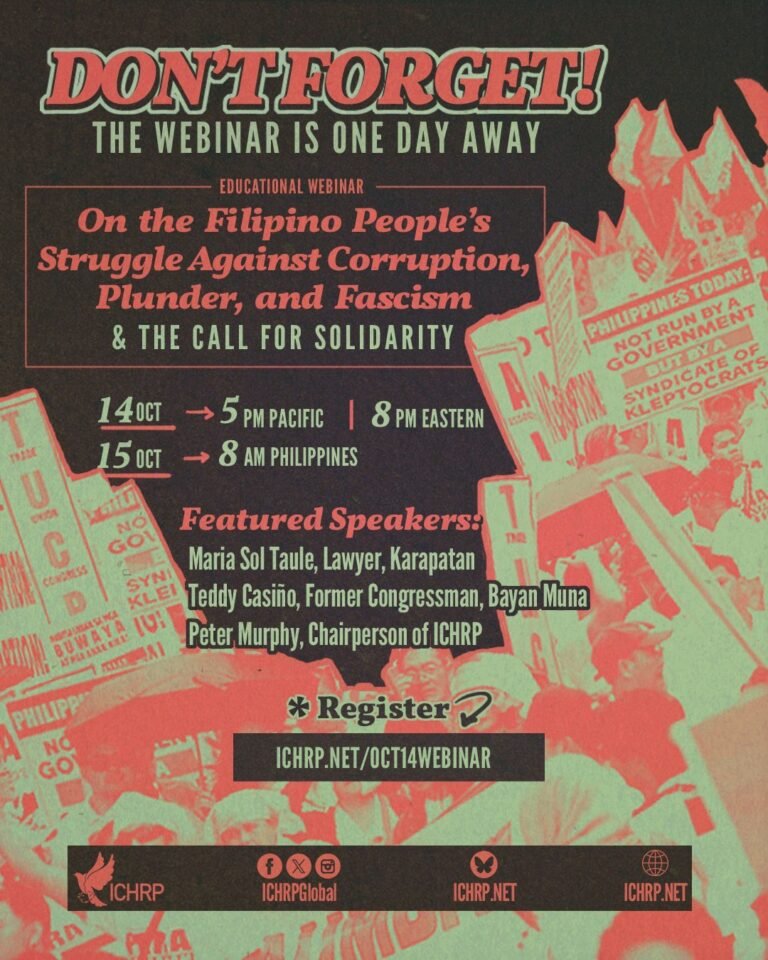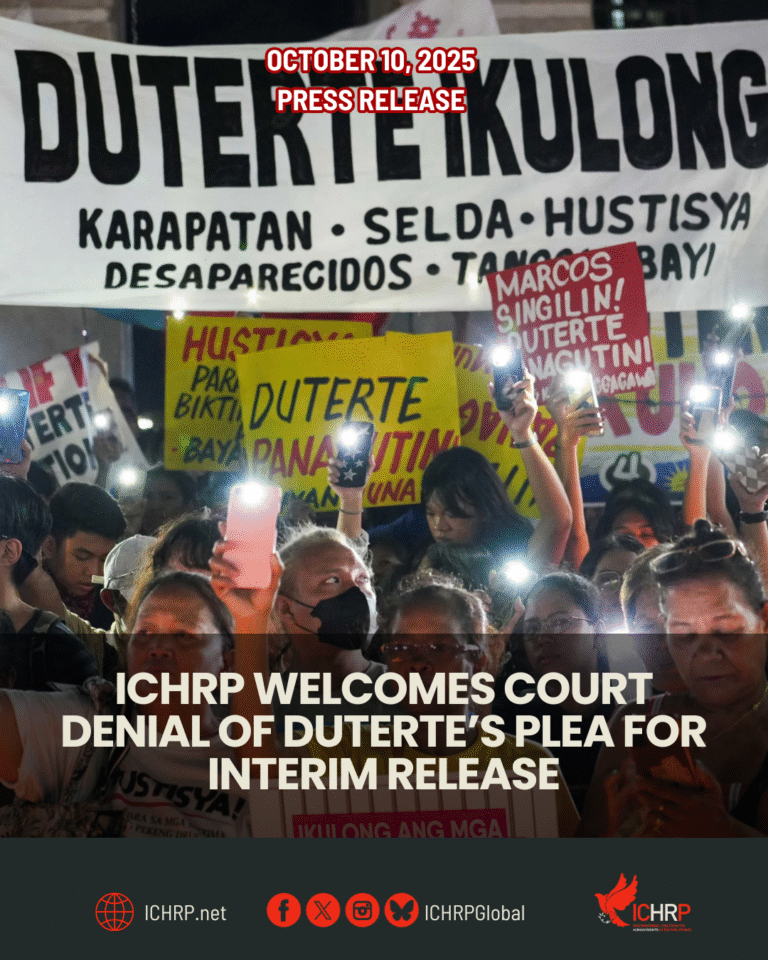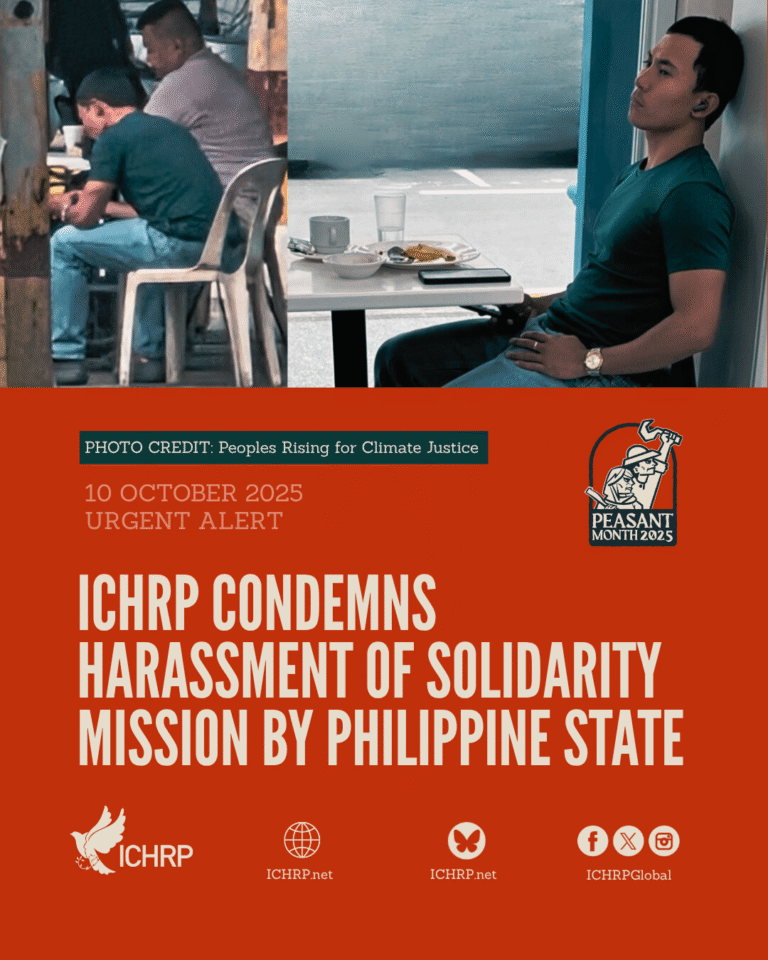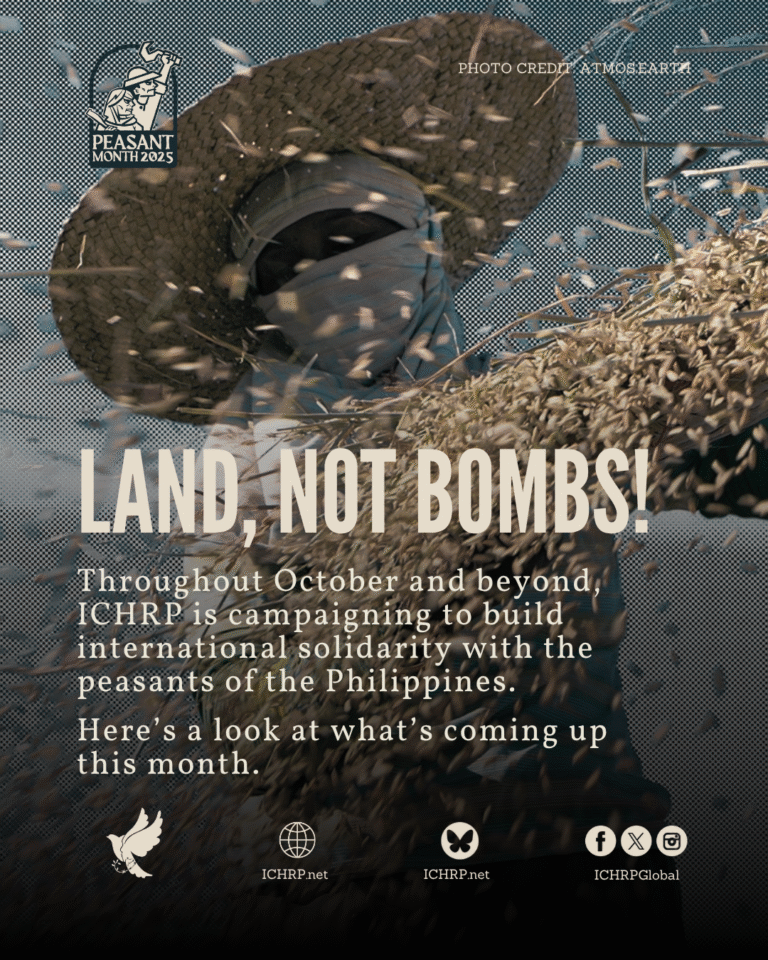This article is the first in a series on the important work of KMP. The other three articles are available to read here on the ICHRP website: KMP and the struggle for land, KMP and the struggle against fascism, KMP and the anti-imperialist struggle.
Founded in 1985, the Kilusang Magbubukid ng Pilipinas (KMP) unites the peasants and farmworkers across the Philippines to campaign against feudalism, bureaucrat capitalism, and foreign domination, exposing the rotten feudal and foreign-dominated system that has long oppressed the majority of toiling people in the countryside.
Forged Under Fascist Repression
KMP was founded during Ferdinand Marcos Sr’s martial law in response to the state’s long history of deception and repression of the peasant masses. KMP has become a pillar of the broader democratic movement and has been sown via collective farming, established through protest marches, and forged in the struggle for land and justice. KMP asserts: land belongs to the tillers, not landlords or foreign interests.
Champions of Genuine Social Change
Regime after regime has flaunted bogus land reform programs leading to widespread land grabbing, evictions, and militarization crushing farmers generation after generation.
But KMP envisions progress rooted in the landownership of tillers and in collective, systematic farming. In this alternate system, peasants nurture a vibrant and life-sustaining agriculture, laying the foundation for the growth and sustainability of national industries.
Under the regime of Ferdinand Marcos Jr., the nightmares of the past return:
intensified militarization, abandonment of local agriculture, and subservience to the dictates of U.S. imperialism. Through the Enhanced Defense Cooperation Agreement, U.S. military bases and weapons have been reintroduced into the country, endangering the security and livelihood of rural communities.
Peasant Victories Will Spring from Tireless Struggle
ICHRP applauds KMP’s continued commitment to be the voice and strength of the oppressed and exploited. Through determination and steadfastness, future victories will spring from tireless struggle. We stand by the efforts of KMP to rouse the broadest ranks of farmers and farmworkers to collectively fight for genuine land reform until final victory is won!




